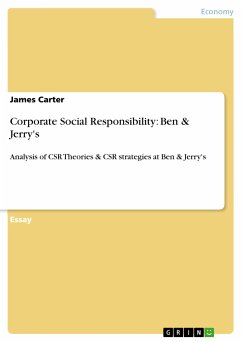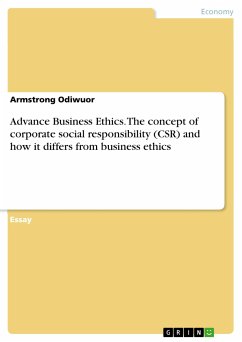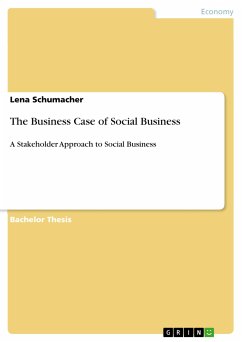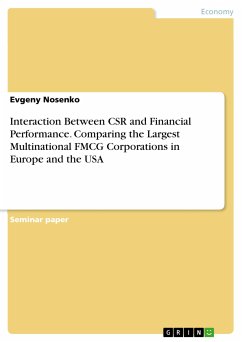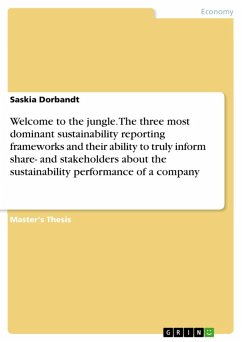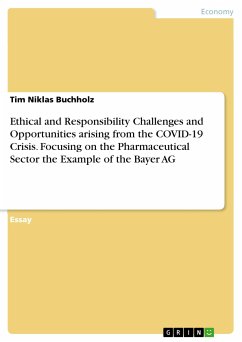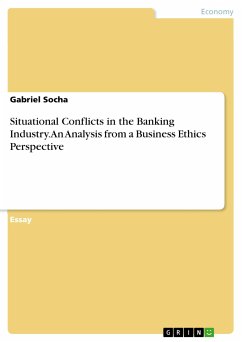Essay from the year 2011 in the subject Business economics - Business Ethics, Corporate Ethics, grade: 1,8, Heriot-Watt University Edinburgh, language: English, abstract: The notion Corporate social responsibility (CSR) has provoked an extensive history of academic debate whether corporations have a social as well as financial responsibility to the community or not. The main conflict in this field has been associated with the evolution of the concept and the definition of CSR. Even though this concept has a long and varied history, which arose centuries ago, the formal writing on social responsibility, however, is mostly a product of the past 50 years. During that time, there have been many papers published by academics and business practitioners. Bowen (1953) marks the beginning of the modern period of literature and argued that centralised power of big corporations had influence on the lives of citizens, by company’s actions and decisions. Davis (1960) became famous because he emphasised the correlation between social responsibility and business power and justified socially responsible business decision in light of a good chance of bringing long-run prosperity to the corporation. In arguing against CSR, Milton Friedman (1970) seems to be widely accredited. In fact, he does not dispute the validity of CSR, but rather argues that when these activities are carried out for reasons of self-interest, then they are merely profit-maximization under the cloak of CSR. He set forth that the social responsibility of business is to increase their profits and its managers’ responsibility to act solely in the interest of its shareholders (maximising shareholders-value). This being said as a short introduction to the academic development of CSR, highlights that CSR is not at all common sense and therefore needs further theoretically examination. Besides these debates in the academic world, there has been also a development in practise. The business world offers numerous examples of companies not only focusing on short-term profit without considering social and environmental issues. There have been an increasing number of companies containing ethical and moral values in their corporate strategy and considering their society and environment as important factors towards a long-term success. Successful companies such as Body Shop, Stonyfield Farm or Ben & Jerry’s have been establishing strategies which main focus relies on Corporate Social Responsibility and appreciated CSR as a business driver. The aim of this paper is to critically evaluate social responsibility of business in a global economy.


